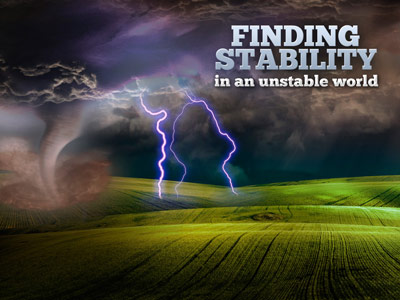-
Preserve Me, O God Series
Contributed by Freddy Fritz on Apr 24, 2020 (message contributor)
Summary: Psalm 16:1-11 shows us how to respond to a crisis.
Scripture
Someone imagined what the history books say:
There was a global pandemic caused by a virus. The number of infected people grew daily. Officials recommended frequent handwashing and quarantining of the sick. Cities went so far as to ban public worship services and other public gatherings! In the end, the pandemic killed 50 million people, including 675,000 Americans. No, we are not describing the COVID-19 pandemic of 2019-2020, but rather what is commonly known as the Spanish Flu pandemic of 1918.
Chris Gehrz, a history professor at Bethel University, recently wrote how churches and church leaders responded to that 1918 pandemic, as reported by local newspapers:
• Some pastors were creative and led outdoor services, encouraged home worship, and even reading sermons published in newspapers.
• An interim pastor in San Francisco preached that many Christians had caused the pandemic as a result of being “cowardly” and “worldly,” and only repentance of these sins would stop the spread of the virus.
• At the other spectrum, a Methodist leader wrote that “…the pandemic should convince ‘Intelligent Christians’ to trust science rather than seeking to ‘tempt God to perform a miracle in the preservation of our health.’ ”
• Some pastors refused to close their doors, held services in protest, and in at least one city a pastor was arrested for refusing to cancel services.
In this time of international crisis, we are reminded that this is not the first time that churches have faced a major disruption of regular activities. And just as history is judged in retrospect, how we respond to our current crisis not only gives witness to our faith but will also be reported and evaluated by future generations.
So, how do we want our response to be remembered?
Psalm 16 shows us how David responded to a crisis that he faced.
Please follow along as I read Psalm 16:1-11:
A Miktam of David.
1 Preserve me, O God, for in you I take refuge.
2 I say to the Lord, “You are my Lord;
I have no good apart from you.”
3 As for the saints in the land, they are the excellent ones,
in whom is all my delight.
4 The sorrows of those who run after another god shall multiply;
their drink offerings of blood I will not pour out
or take their names on my lips.
5 The Lord is my chosen portion and my cup;
you hold my lot.
6 The lines have fallen for me in pleasant places;
indeed, I have a beautiful inheritance.
7 I bless the Lord who gives me counsel;
in the night also my heart instructs me.
8 I have set the Lord always before me;
because he is at my right hand, I shall not be shaken.
9 Therefore my heart is glad, and my whole being rejoices;
my flesh also dwells secure.
10 For you will not abandon my soul to Sheol,
or let your holy one see corruption.
11 You make known to me the path of life;
in your presence there is fullness of joy;
at your right hand are pleasures forevermore. (Psalm 16:1-11)
Introduction
Psalm 16 was written by David. We don’t know the specific occasion for this psalm. David’s petition for God’s preservation (in verse 1) and his mention of Sheol (in verse 10) seems to suggest that he was confronted by death. David faced a crisis in his life, and he wrote this psalm as his response to the present crisis.
When a pastor preaches, he seeks to address a need or an issue that members of the congregation are facing. Sometimes his address is applicable to everyone, but usually, it is applicable to certain individuals in the congregation. Every one of us is faced with the international coronavirus pandemic. Indeed, one of our very own members died this past week as a result of the coronavirus.
So, how shall we respond to this—or any—crisis?
Lesson
Psalm 16:1-11 shows us how to respond to a crisis.
Let’s use the following outline:
1. When Facing a Crisis, Pray (16:1)
2. When Facing a Crisis, Act (16:2-11)
I. When Facing a Crisis, Pray (16:1)
First, when a crisis, pray.
David’s prayer to God is in verse 1a, “Preserve me, O God.” This is David’s petition to God. The Hebrew word for “preserve” means “to hedge about (as with thorns); to guard; to protect.” David wanted God to protect him in the crisis he was facing. Most likely, it was when Saul wanted to kill David.
We all want God to preserve us at the present time. We are all facing the threat of coronavirus. And so our petition to God is the same as David’s, “Preserve me, O God.”
Now, I don’t want you to miss the reason David was able to make his petition to God. He asked God to preserve him, “for in you I take refuge” (16:1b). The Hebrew word for “refuge” means “a shelter.” When the Lord brought his people from Egypt to the Promised Land, he established “cities of refuge” to which people accused of unintentional manslaughter could flee and find safety (Numbers 35:9-15). David affirmed that his refuge was not a city but the Lord himself. In other words, David was grounding his preservation in the person of the Lord. He belonged to the Lord, and that was the basis for his petition to God.

 Sermon Central
Sermon Central



